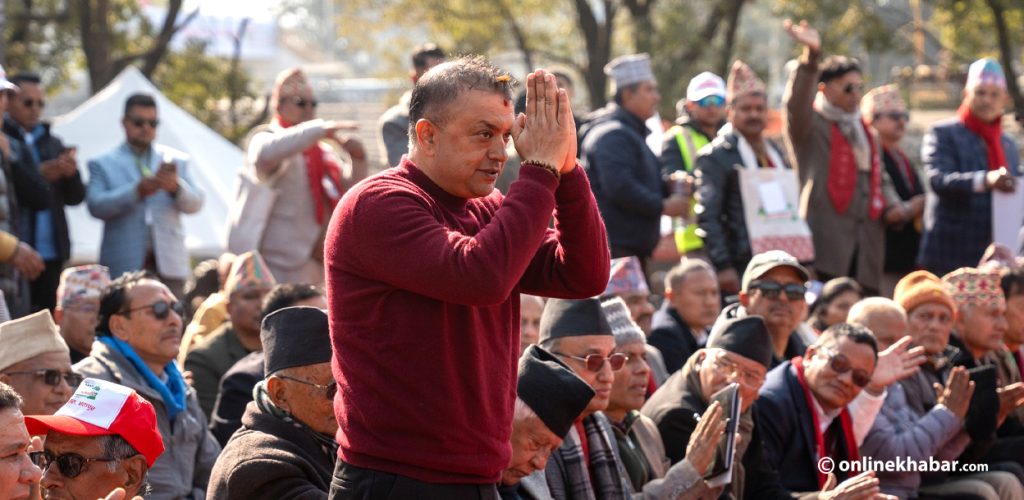
Who possesses intellect? This is a topic that warrants debate in today’s world. Furthermore, intelligence and conscience serve as the tools that maintain a balanced political landscape. If these tools are not wielded properly, they have the potential to cause unforeseen accidents.
Utilising the knowledge systematically acquired through life experiences for the betterment of society is the fundamental goal of intelligence. I prefer not to delve too deeply into the definition and explanation of democracy; my perspective on democracy is more spiritual than explanatory.
I believe that it is an advanced democratic practice for every person to express democracy in their behaviour.
My concern is how the Nepali Congress, being a major democratic force in Nepal works for democracy in its intellectual, political and democratic practice.
A comparison, the early days and now

The Nepali Congress is a party with a rich history in the country, rooted in its own original principles and beliefs. The early movement initiated by the Nepali Congress was closely linked with the intellectual and literary movements in Nepal. However, the current political trajectory, marked by trends of anarchy and disillusionment among leaders within the Nepali Congress, appears to deviate from the party’s foundational principles and beliefs.
Discussions and debates within the party are decreasing day by day. There is a notable absence of questioning cadres within the party, leading to an influx of conformist members. Consequently, this trend is giving rise to distinct classes within the democratic party.
Instead of focusing on updating the party’s policies and principles to align with the current global environment, there is a discernible shift toward hypocritical tendencies within the party.
Even though the Nepali Congress is now in a situation where the economic policies put forward by BP Koirala can be easily implemented, the attention of the leaders has not been directed towards them.
Are the present local governments of the Nepali Congress aligning with the economic development principles advocated by BP Koirala? Is the Nepali Congress positioning itself in the political arena as a historical necessity, representing the independent spirit of the Nepali people who were historically exploited by the feudal system?
These are questions that should be discussed in depth within the Nepali Congress.
The problem

The reason for all these problems created within the party is the ideological deviation and factionalism created within the party. It is evident that issues, such as different factions attempting to steer the democratic party according to their own preferences, are becoming ingrained in the current Nepali Congress.
Although the party embraces the path of socialism, it seems that there is a drought within the party on how to adopt the path of socialism shown by the BP in the current era and how to build a more advanced socialist state system.
The consciousness of what we are, what we are not, and why we are different from the communists is not seen even in the latest generation of Nepali Congress. It has not happened even from the schooling leaders, which indicates that the party is still on the path of the Mahabharatian political system rather than the direction of scientific politics.
Politically, all parties in the country proclaim to oppose corruption. However, the party that asserts itself as entirely democratic, declares its role as the guardian of diverse political movements in Nepal, and advocates policies aimed at fostering societal brotherhood is facing serious scrutiny. The involvement of party cadres in corruption, coupled with leaders actively shielding corrupt practices, raises significant questions about the state of politics today.
And there are signs that the people are looking for an alternative. The various electoral alliances and alliances formed due to the vested interests of some individuals and groups do not seem to be healthy for the Nepali Congress in the long term.
Moreover, such unnatural alliances created against the constitution and principles of the party create a situation of deviation and confusion among the general workers of the party in the long term.
The democratic movement of the Nepali Congress has now turned into a campaign because the political movement has already been completed at one stage. However, it may not have been felt so much at the public level.
In the political landscape of Nepal, the Nepali Congress is a party that has been granted numerous opportunities by the people for improvement. With the increasing potential for alternative politics, it appears that the Nepali Congress faces a significant challenge in enhancing itself over the next three years.
Since the Communists of Nepal are becoming more bourgeois, the communist movement established a new structure through class struggle. But history has proven that the communists are falling in the world because the new structure that is built becomes feudal and authoritarian.
The communist movement in Nepal is also in the same condition now. In this situation, the Nepali Congress can gather a lot of trust from the people and establish itself as a stable political force.
The Nepali Congress has no more options. So, now Nepali Congress should start a new democratic revolution towards production, accelerate the construction of national capital, and move forward in the direction of advanced socialism.
Even though the Nepali Congress is a party of scholars and decent people, this belief is still alive somewhere. Once again, the Nepali Congress can prove this point.
























